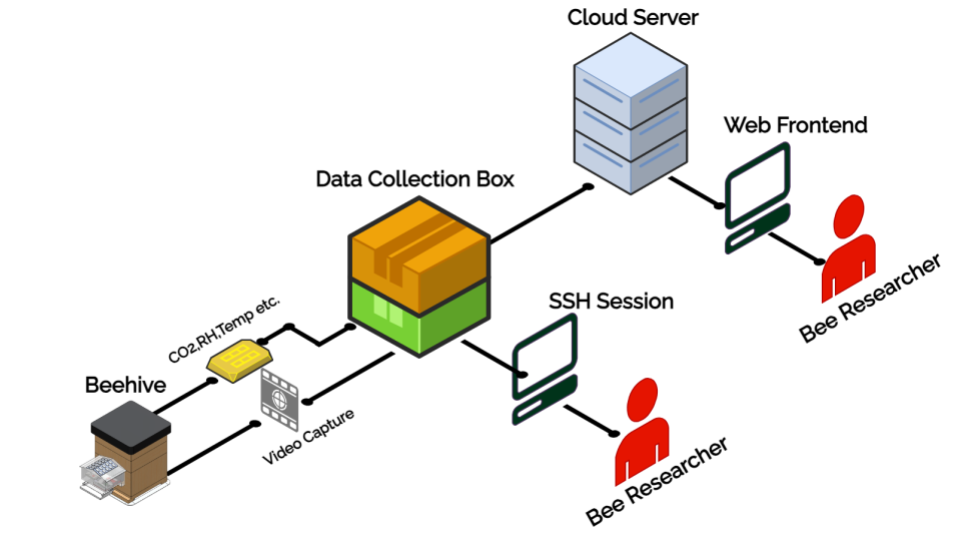
Solution Architecture
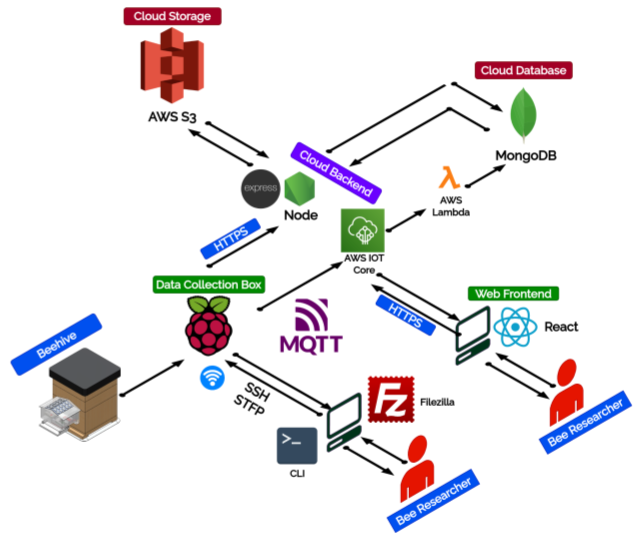
Solution Infrastructure
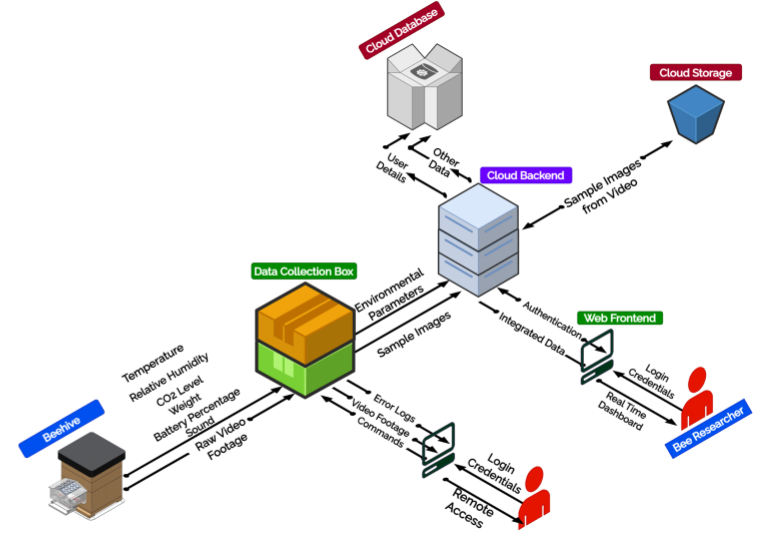


Beekeeping faces challenges in traditional hive management methods, where manual monitoring is time-consuming and may not provide timely insights into the health and behavior of bee colonies. One significant issue is the difficulty in early detection of abscondment, a situation where bees abandon their hive, leading to significant losses for beekeepers. Additionally, identifying feeding irregularities manually is a complex task, requiring careful observation and expertise.
The Smart Beehive Monitoring System addresses these challenges by leveraging advanced technologies such as cameras and artificial intelligence. This system aims to transform traditional beekeeping practices by automating the monitoring process. Through the integration of smart sensors, cameras, and AI algorithms, the system collects and analyzes data in real-time, providing beekeepers with a comprehensive understanding of hive conditions.
The system continuously monitors hive conditions in real-time.
Cameras capture live footage, allowing beekeepers to observe the hive remotely.
Data collected over time enables historical analysis.
Trends and patterns are identified, aiding in understanding the long-term health of the bee colony.
Smart sensors measure various parameters such as temperature, humidity, and bee activity.
These sensors provide detailed insights into the hive environment.
The system offers a user-friendly interface accessible via a web or mobile application.
Beekeepers can receive alerts, view real-time data, and access historical information effortlessly.
The system enables early identification of abscondment events.
Beekeepers receive immediate alerts, allowing them to take proactive measures to address the issue.
By automating monitoring processes, the system streamlines beekeeping operations.
Timely alerts and actionable insights empower beekeepers to make informed decisions, promoting the overall health and sustainability of their colonies.
The collected data provides valuable insights into hive dynamics, contributing to a better understanding of bee behavior and environmental factors affecting bee colonies.
Anomalies in feeding patterns are detected through AI analysis.
Beekeepers can intervene promptly, ensuring the health and well-being of the bee colony.



Figma wireframes of the web application

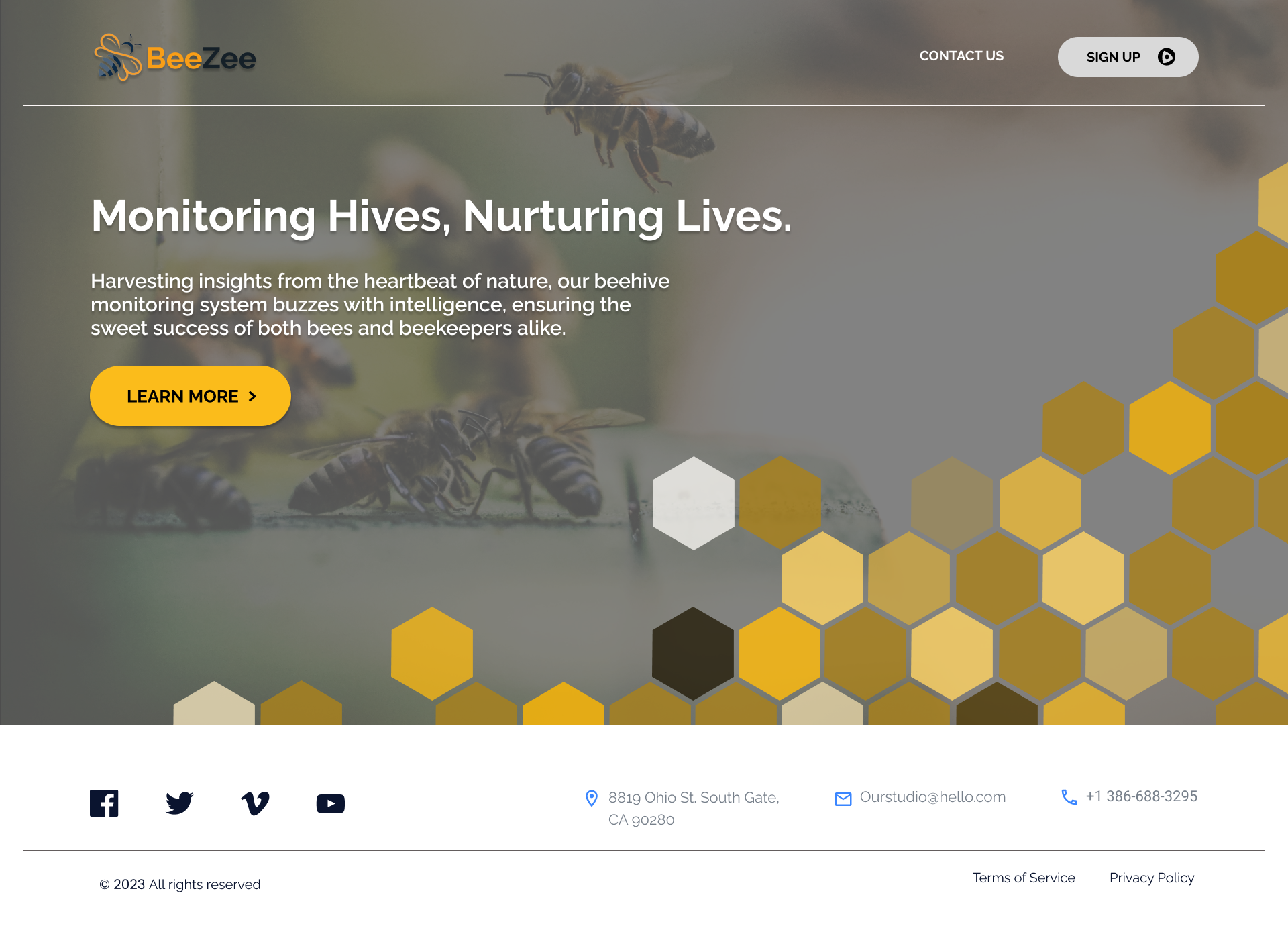

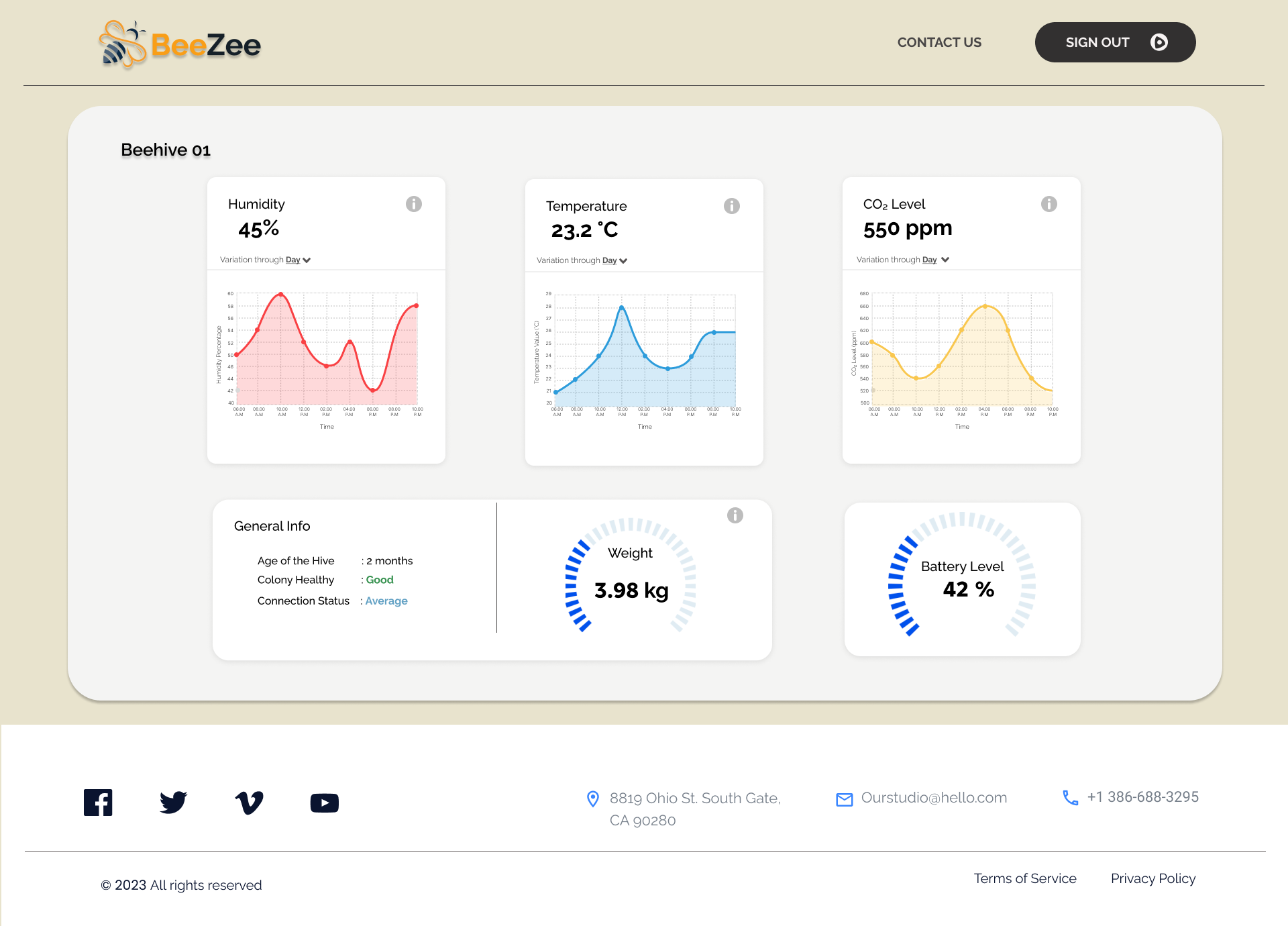
3D model of the product
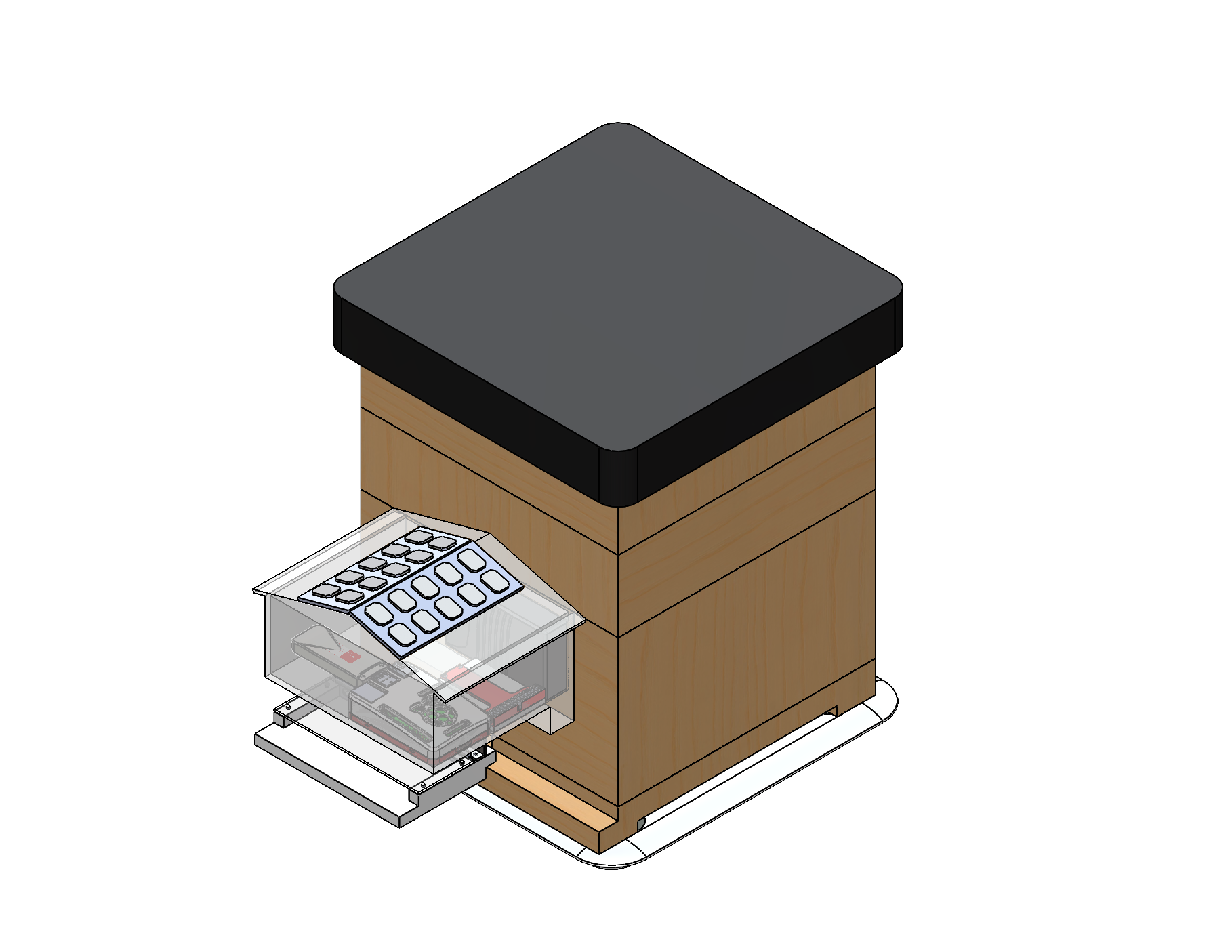
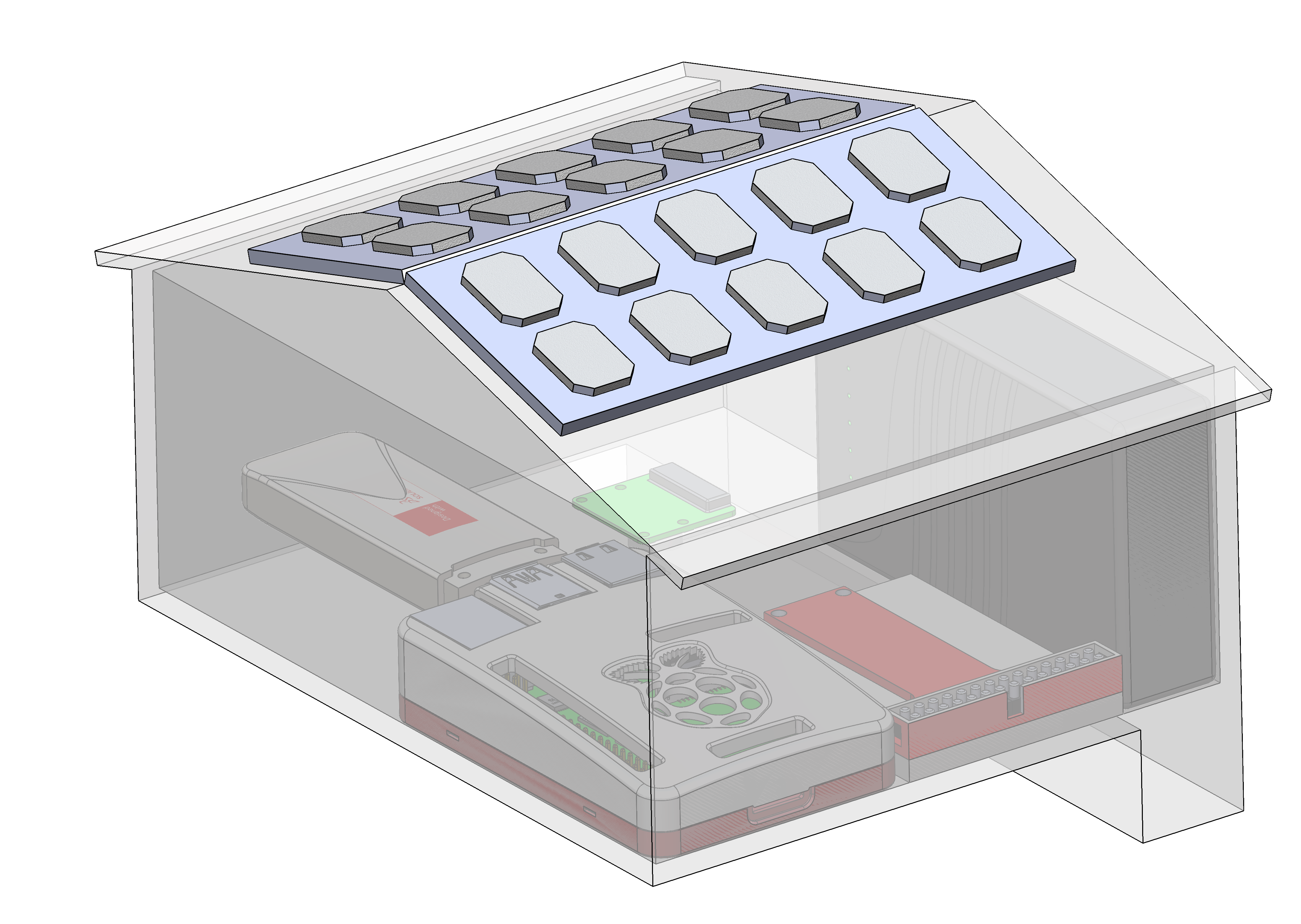
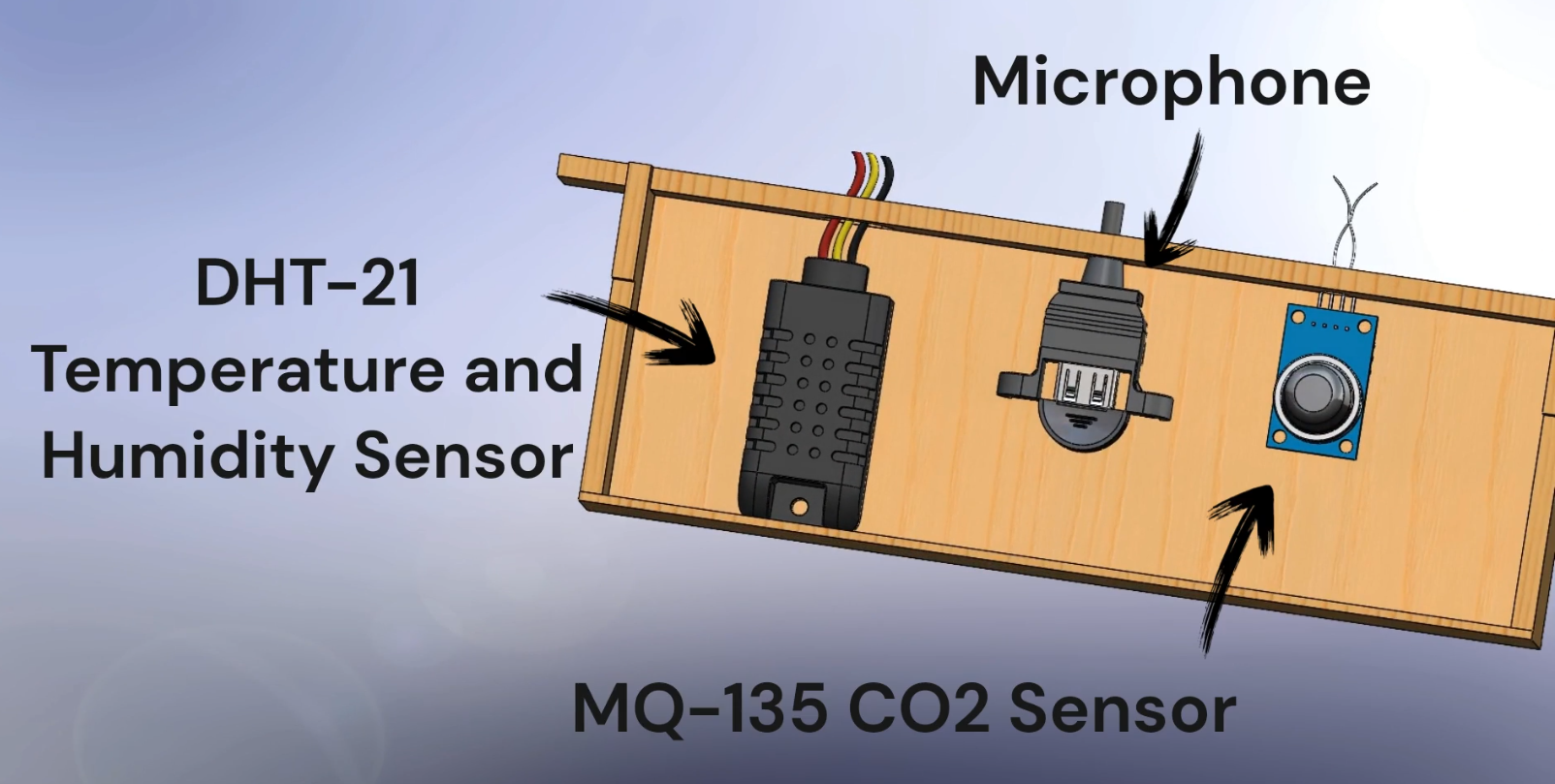
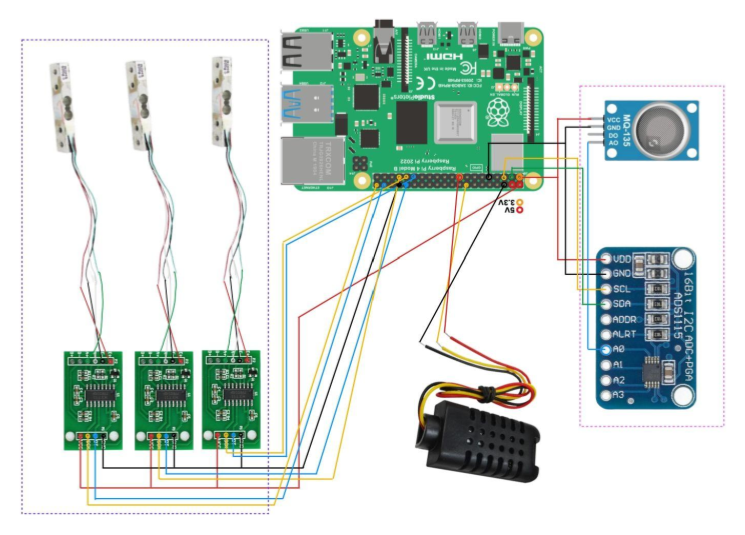
| Item Name | Quantity | Unit Price (LKR) | Total (LKR) |
|---|---|---|---|
| Raspberry Pi 4 Model B-8GB | 1 | 33,800.00 | 33,800.00 |
| Raspberry Pi High-Quality Camera | 1 | 20,000.00 | 20,000.00 |
| Telephoto Camera Lense | 1 | 20,000.00 | 20,000.00 |
| 12V 5000mAh Li-ion battery pack | 1 | 7,200.00 | 7,200.00 |
| 12V/50W Solar Panel + Controller | 1 | 4,920.00 | 4,920.00 |
| Kingston MicroSD 32GB Class10 (Original) | 1 | 2,100.00 | 2,100.00 |
| Raspberry Pi Camera Cable (2m) | 1 | 2,400.00 | 2,400.00 |
| Temperature and Humidity Sensor Module (DHT21) | 1 | 1,860.00 | 1,860.00 |
| Official Raspberry Pi 4 Case Fan and Heatsink | 1 | 1,800.00 | 1,800.00 |
| Buck Boost Voltage Regulator | 1 | 1,600.00 | 1,600.00 |
| CO2 Sensor (MH-Z19C CO2 Sensor) | 1 | 450.00 | 450.00 |
| HX711 Dual-channel 24-bit AD Conversion Weighing Sensor Module for Load Cell (MD0020) | 1 | 160.00 | 160.00 |
| Load Cell 2-8Kg (MD0741) | 2 | 600.00 | 1,200.00 |
| Waterproof Plastic Enclosure Project Box | 1 | 860.00 | 860.00 |
| 1.5M Male To Female USB Cable Cord | 1 | 950.00 | 950.00 |
| USB Microphone Dongle Raspberry Pi PC (PC0013) | 1 | 800.00 | 800.00 |
| T-Type GPIO Expansion Board 40 Pin + Ribbon Cable Adapter Board For Raspberry Pi | 1 | 800.00 | 800.00 |
| Type C USB Data Cable Quick Charge (Raspberry Pi) | 1 | 390.00 | 390.00 |
| BreadBoard | 1 | 250.00 | 250.00 |
| Jumper Wire (Male-Male) | 1 | 180.00 | 180.00 |
| Jumper Wire (Female-Female) | 1 | 170.00 | 170.00 |
| Jumper Wire (Male-Female) | 1 | 170.00 | 170.00 |
| Total | 120,000 |
| Test Feature / Unit | Tested Functionality | Testing Tools | Status |
|---|---|---|---|
| Software Testing | User login with JWT, API testing | JEST | Passed |
| Temperature and Humidity | Validate the accuracy | Testo 400 | Passed |
| Load Cell | Validate the accuracy | Standard weights | Passed |
Team Members
Supervisor

Dr. Isuru Nawinne